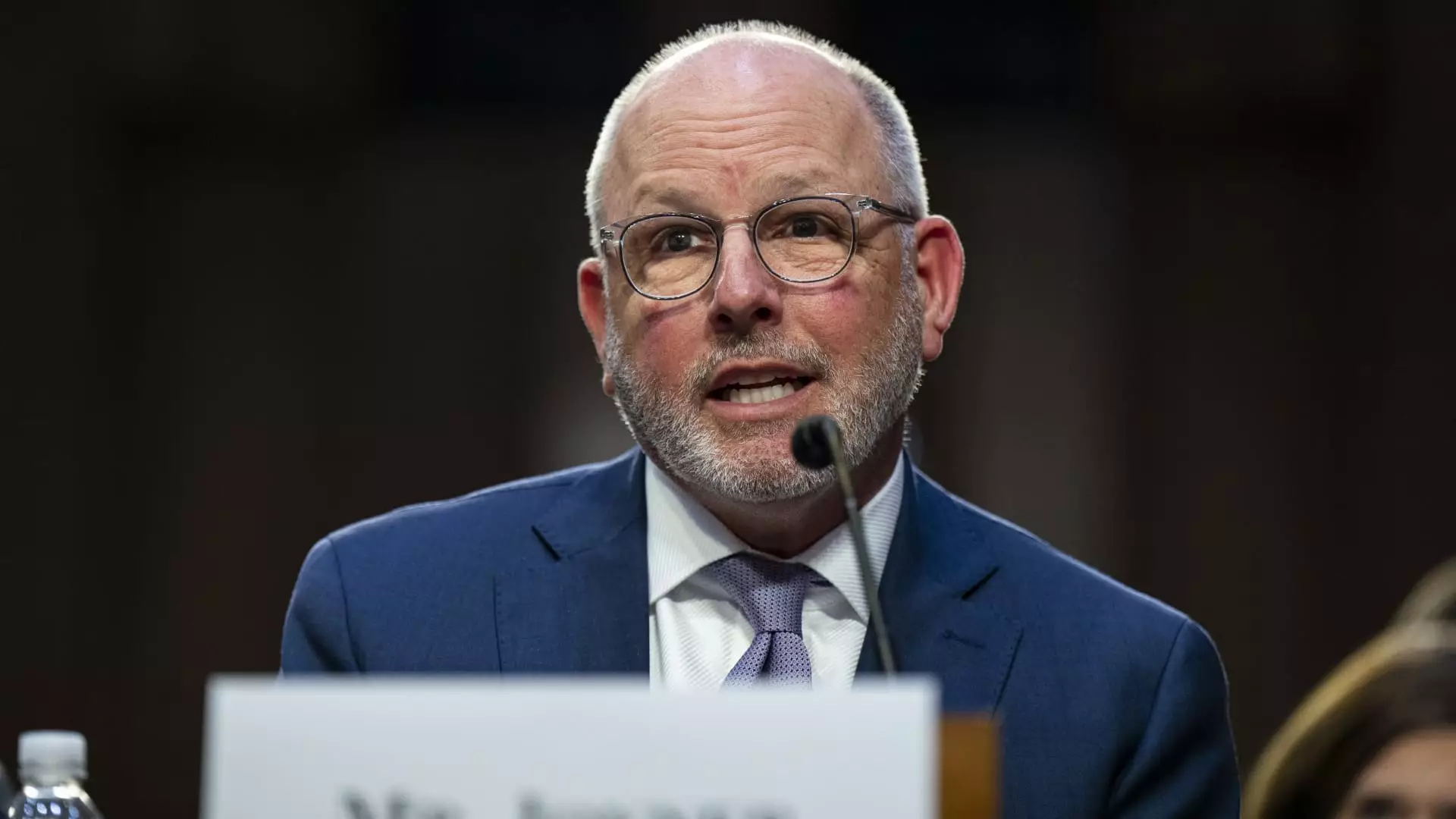CVS Health is undergoing a significant leadership shakeup, as David Joyner takes the helm as CEO, succeeding Karen Lynch. This strategic shift occurs amid troubling financial indicators for the company, highlighted by a staggering 20% drop in its shares this year alone. As of the announcement made recently, CVS shares had already suffered an additional 11% decline in premarket trading, showcasing a market response that reflects growing investor concerns.
The leadership transition is indicative of a broader struggle within CVS Health, where rising medical costs, particularly in its insurance unit, Aetna, are putting pressure on profitability. The retail pharmacy sector is also facing headwinds due to reduced consumer spending and reimbursement complications for prescription drugs. This multifaceted crisis has prompted CVS to revise its profit expectations downward in recent months—the third consecutive cut that signals a troubling trend.
The latest earnings guidance from CVS indicates expected adjusted earnings of between $1.05 and $1.10 per share for the upcoming third quarter, a worrying forecast as it reflects anticipated higher medical costs than initially expected. CVS’s acknowledgment of “elevated medical cost pressures” highlights the complex environment that the company operates within. This is particularly poignant given that a critical metric, the medical benefit ratio—which compares total medical expenses against premiums collected—is forecasted to rise to 95.2%, compared to 85.7% from the same quarter last year. Such an increase illustrates the challenges CVS faces in maintaining profitability even as demands on healthcare services escalate.
The scrutiny CVS is under isn’t confined to its operational metrics; it also involves external pressures from major stakeholders. Prominent shareholder Glenview Capital’s active push for organizational changes and the potential breakup of CVS’s insurance and retail segments reveals an urgent desire for reform within the company. CVS, however, has opted to keep its structure intact for now, as stated by a company spokesperson.
David Joyner’s return to CVS Health is rooted in a history that intertwines with both CVS and its pharmacy benefits manager, Caremark. Before retiring in 2019, Joyner had already built a robust resume, overseeing critical aspects of CVS’s operations. His recent appointment as CEO suggests an investment in continuity and an attempt to leverage his prior experience to guide the company through turbulent waters. Joyner himself commented on his return, expressing a commitment to revitalizing CVS and addressing the pressing challenges it faces.
As the new leader, Joyner’s deep-rooted background in pharmacy benefit services and senior roles at CVS positions him well to tackle the complex issues affecting the company. However, his ascent to the CEO role is not without challenges. The scrutiny on Caremark and other pharmacy benefit managers by lawmakers—and the Federal Trade Commission’s recent lawsuit against them—adds a layer of complexity that Joyner will need to navigate adeptly.
Implications for CVS Health’s Future Strategy
The implications of Joyner’s leadership extend beyond immediate financial concerns. Actions from the Biden administration and ongoing regulatory pressures could significantly impact how CVS operates in the pharmacy benefits market. As a prominent player in this arena, CVS must strategize effectively to respond to regulatory changes and shifting political landscapes.
Additionally, Joyner will have to contend with the increasing medical costs associated with Medicare Advantage plans. The surge in these costs correlates with a post-pandemic return of senior patients to hospitals, indicating that the healthcare landscape is only becoming more complex. CVS aims for an improvement in profit margins within its Medicare Advantage business, a goal that will demand effective management and operational efficiencies under Joyner’s leadership.
Amid these dynamic challenges, CVS is poised to report third-quarter earnings in early November. Stakeholders will be closely watching the financial outcomes, particularly in relation to medical costs and profitability measures, as the company strives to realign its strategy under new management.
CVS Health has entered a critical phase in its history, characterized by leadership change and pressing economic indicators. With David Joyner at the reins, the company hopes to leverage his experience to navigate the multifaceted challenges it faces. While the road ahead may be steep, the integration of thoughtful strategy and a commitment to operational improvement could allow CVS to reclaim its footing in a highly competitive and rapidly evolving healthcare landscape. The unfolding developments will be closely monitored by investors, employees, and consumers alike as CVS endeavors to redefine its path moving forward.

